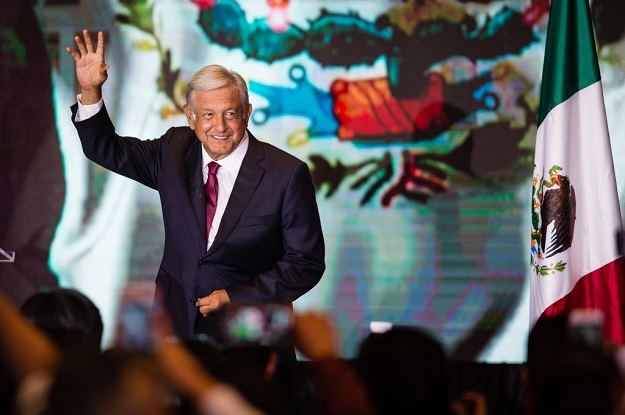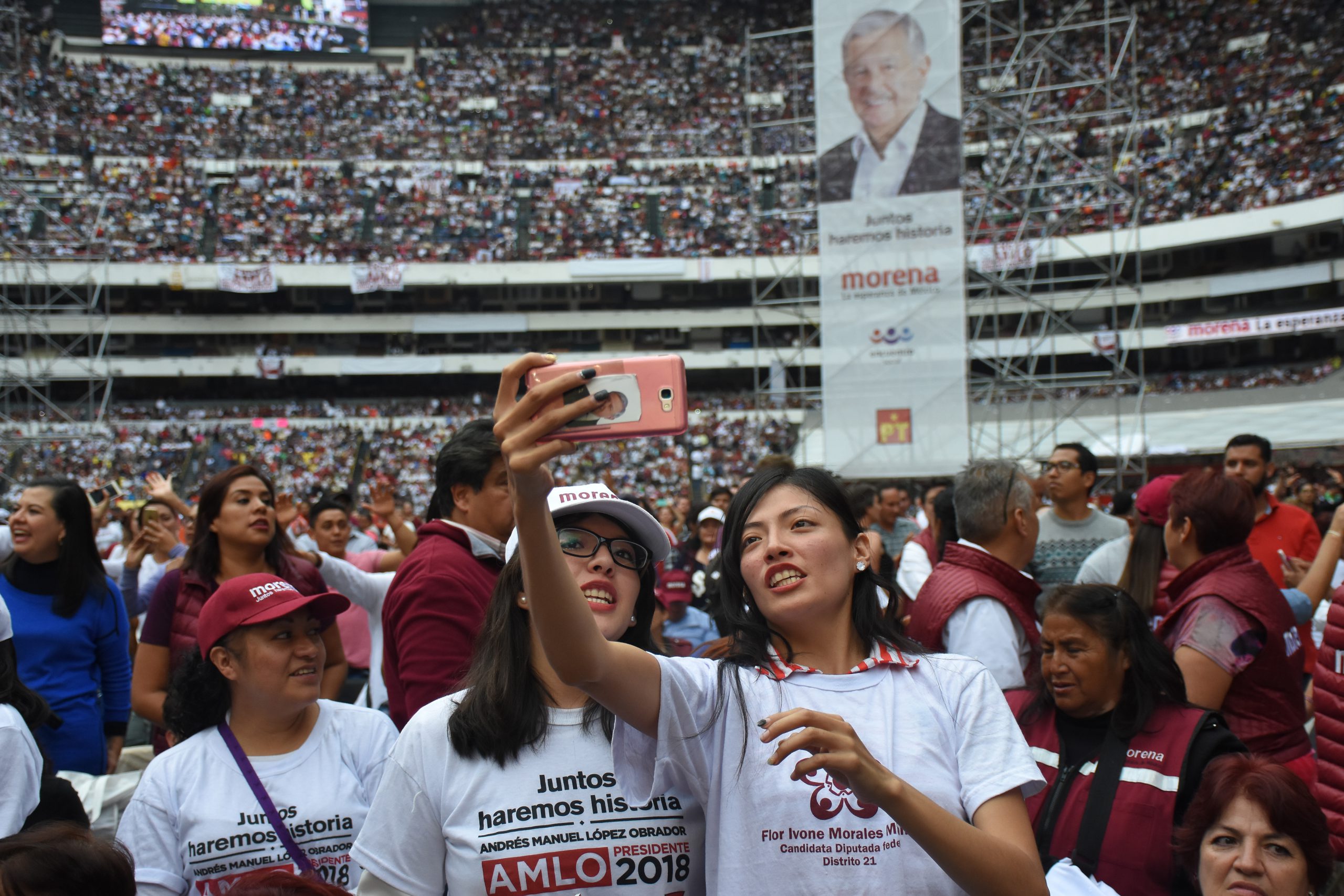Andrés Manuel López Obrador’s decisive victory in Mexico’s presidential election will surely intensify the debate over how he will govern: as the populist firebrand nostalgic for statist economic policies, or as the pragmatic former mayor who governed Mexico City with moderation. Yet López Obrador’s more radical impulses will likely have to be tempered by a modernizing Mexico that has largely embraced and is dependent upon a free-market economy integrated with the United States.
Throughout the presidential campaign, AMLO, as López Obrador is widely known, sent mixed signals about his economic intentions. On the one hand, he promised new social programs and government subsidies without clarifying how he will pay for them, raised questions about the sanctity of existing government contracts and threatened to halt construction of a badly needed new Mexico City airport. At the same time, he committed to maintaining fiscal discipline, endorsed the ongoing negotiations with Canada and the United States to update the North American Free Trade Agreement, and assured foreign investors and Mexican businesses he will a sustain a favorable business climate.
AMLO’s opponents, and even some supporters, worry that his relative rhetorical moderation during the campaign was merely a tactic to reassure voters who rejected him in his previous two presidential runs as too much of a risk. Whether or not that is the case, AMLO’s policy leeway will be limited. The López Obrador administration will need to be mindful of international markets and sensitive to Mexican public opinion, which leans toward moderation.
Before the July 1 election, markets had already been reacting to AMLO’s expected victory. The Mexican peso had fallen sharply, due to AMLO’s commanding lead in the polls as well as U.S. President Donald Trump’s threats to withdraw the United States from NAFTA. In a victory speech, AMLO sent reassuring signals to foreign investors and the Mexican business class by committing to fiscal and monetary rectitude. AMLO is not an internationalist by nature, but he recognizes basic economic facts: Mexico leads the world in free trade agreements and is especially reliant on economic links with the United States. Eighty percent of Mexico’s exports go to the United States, and more than 40 percent of foreign investment in Mexico originates from American companies.
The Mexican public is pragmatic as well. Although AMLO’s victory was due in part to frustration over stagnant wages and a sense the economic reforms of the last 25 years have fallen short in delivering for the poor and middle class, most Mexicans would reject a wholly populist approach to the economy.
Polls have consistently shown strong public support for foreign trade and investment, for example. Seven of 10 Mexican adults believe trade has had a positive impact for Mexico, according to a national poll I conducted for GBA Strategies. An equal share considers foreign investment in Mexico to have had a positive effect.
Nor is there much resentment toward large Mexican companies. Mexicans scorn the government for its corruption and apparent favoritism of the well-connected, but they have favorable views of the private sector. Three-quarters of the public think large Mexican companies have a positive impact, GBA polling shows.
These attitudes underscore that unlike in other Latin American countries with leftist populist governments, Mexico’s political environment is not conducive to pitting social groups against each other. Unlike Presidents Nicolás Maduro of Venezuela, Daniel Ortega in Nicaragua and Evo Morales of Bolivia, AMLO’s support is not concentrated among the poor. He enjoys a comparable level of support across all socio-economic strata, polls show.
Against this backdrop, the Trump administration is not overly worried about an AMLO presidency and its impact on U.S.-Mexico relations. Trump himself sees a bit of his renegade self in AMLO, privately dubbing the Mexican politician “Juan Trump,” according to a senior government official.
As Roberta Jacobson, who just stepped down as U.S. ambassador to Mexico, expressed to me about a possible AMLO presidency and its impact on U.S.-relations, “If the sky were going to fall, that would have happened with Trump’s victory.” Yet despite Trump’s offensive and baseless comments about Mexicans and the Mexican government, officials from both countries have managed to mostly maintain day-to-day collaboration between the two countries on migration, trade and law enforcement.
An AMLO presidency should not upset that appreciably. Trump might think he can literally wall off Mexico from the United States, but AMLO knows better. While he will not be as passive as President Enrique Peña Nieto has been toward Trump, who is reviled in Mexico, AMLO has signaled he will strive to preserve the relationship between the two governments. Any verbal sparring between the two feisty presidents would mask a complex and interdependent bilateral relationship. Geography will combine with deep economic, cultural and family ties to ensure the two countries remain close.
—
Feierstein, a senior advisor at the Albright Stonebridge Group and CLS Strategies, was special assistant to President Obama and senior director for Western Hemisphere Affairs on the National Security Council.






